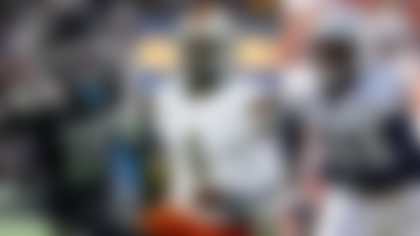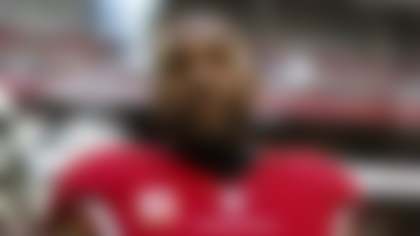NFL referees will take on more responsibility this season to protect players from helmet-first hits to their heads and necks.
The league has expanded its rules to prevent "defenseless" players from taking shots above their shoulders. Groups of officials are meeting with teams during training camp to go over the changes.
Referee Walt Anderson, also the head of officiating for the Big 12 Conference, led a meeting with the Houston Texans on Friday. He said commissioner Roger Goodell has been "very involved" in discussions with the league's rules committee and referees to find ways to limit the number of head injuries, while also maintaining the game's integrity.
"What the NFL has done is take a very proactive stance," Anderson said. "Goodell is very serious about this. We're going to be a very proactive in doing what we can to strike an appropriate balance. We do have a contact sport. At the same time, what can we do to protect the players' safety?"
The reworded rules prohibit a player from launching himself off the ground and using his helmet to strike a player in a defenseless posture in the head or neck. The old rule only applied to receivers getting hit, but now it will apply to everyone.
Anderson, one of 17 officiating crew chiefs, said referees will still closely watch receivers this season, and err toward caution when the players are caught in vulnerable positions.
In years past, Anderson said, defensive players were allowed to hit receivers in the head once the receiver touched both feet on the ground. Now, officials will give a receiver an extra split-second to "basically get into a position where he can defend himself," Anderson said.
Also new this season, when a player loses his helmet, the play is immediately whistled dead. And now, during field-goal and extra-point attempts, the defense cannot position any player on the line directly across from the snapper, who's considered to be in a defenseless position.
The league has implemented more stringent return-to-play guidelines for players who suffer concussions, and each team must consult with an independent neurologist whenever there is a head injury.
Anderson said medical experts laid out the effects of concussions to referees at a rules meeting earlier this year.
"It is such a big point of emphasis, and it's not a point of emphasis just to make it one," Anderson said. "There is some really serious concern about the damage that's done on impact and what happens to the brain."
Photo gallery
Anderson said the league will monitor the effect of the new rules at season's end, then evaluate if they were effective enough in limiting injuries.
"I think it's being appropriately addressed," Anderson said. "We're always looking to get the formula just right. The game changes over time, and we have to be prepared for the rules to change to keep pace, not only from a competitive standpoint, but also from a safety standpoint."
Anderson expects more rule changes related to concussions will come in future years. Some day, he envisions referees wearing protective helmets.
During his training camp tour, Commissioner Roger Goodell addressed another possible change that would reduce concussions -- the end of the three-point stance. Goodell addressed the issue at a Thursday news conference at Browns camp, reports *The Akron Beacon Journal.*
"There's a lot less three-point stance because of the offensive formations and systems that teams are employing," he said. "I think we'll continue to evaluate that, but I think it is a trend that's changing already in our game."
"I think that would change everybody's job,'' defensive lineman Robaire Smith told the newspaper. "For one, it would take leverage and explosion out of the game. It would almost be like really saying don't go out there, don't be physical, don't hit. I think it would be taking away like 70 percent of what really goes on in football."
Added offensive lineman Eric Steinbach, "It wouldn't change nothing because you're still gonna hit. Linebackers are in a two-point stance, and they got to come up [and hit]."
"This is a game of forward motion," he continued. You can't be passive and kind of sit back. Whether you're in a two-point or a three-point [stance], when the ball is snapped, you have to come off.
The Associated Press contributed to this report.
![internal-link-placeholder-0]](http://www.nfl.com/photos/09000d5d81860b53)



